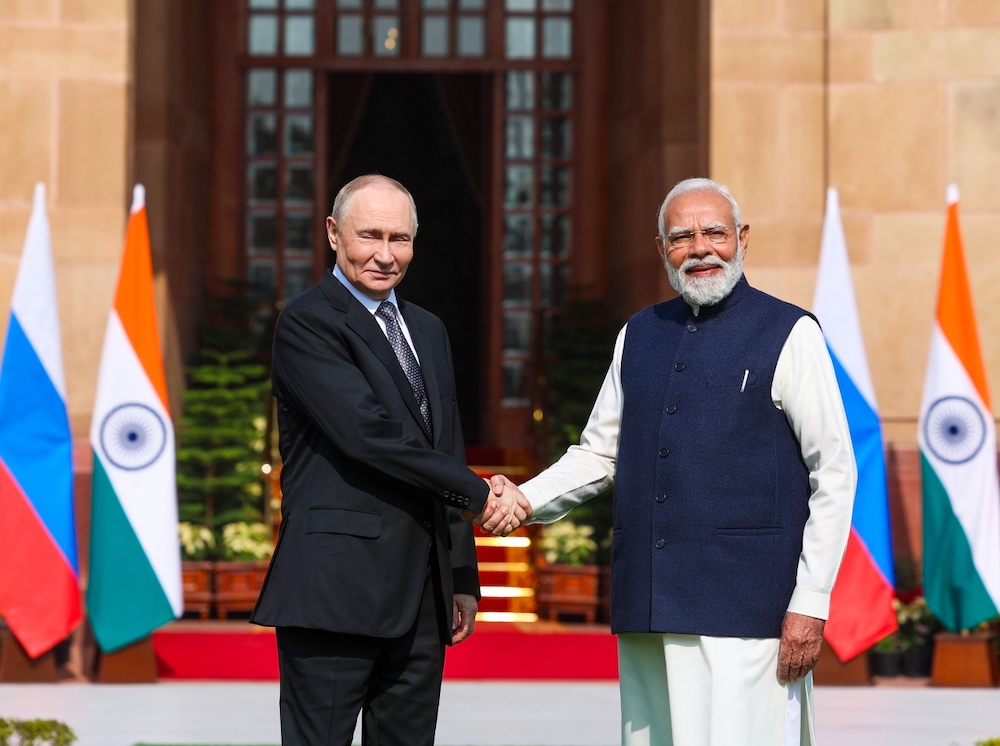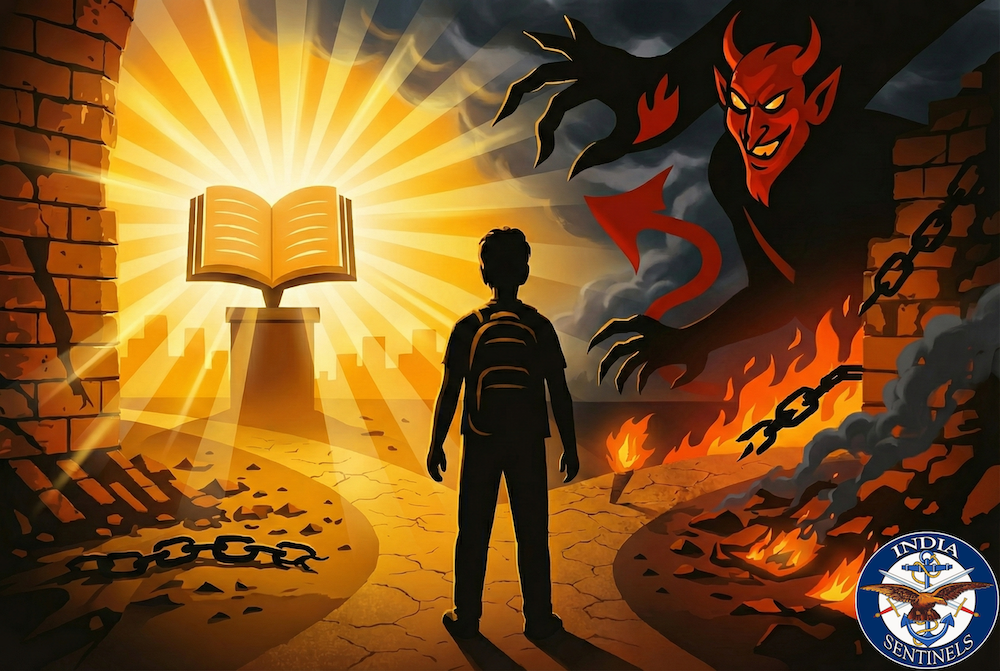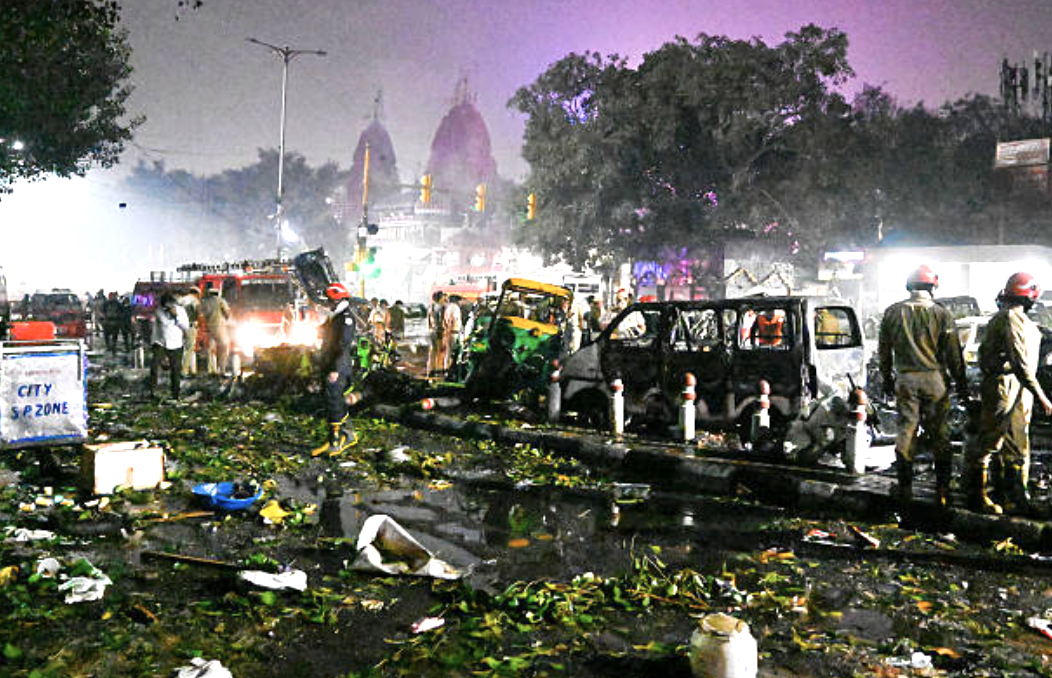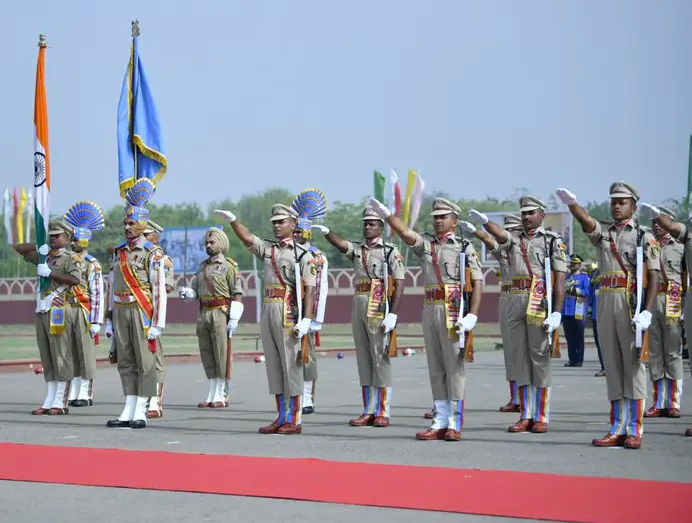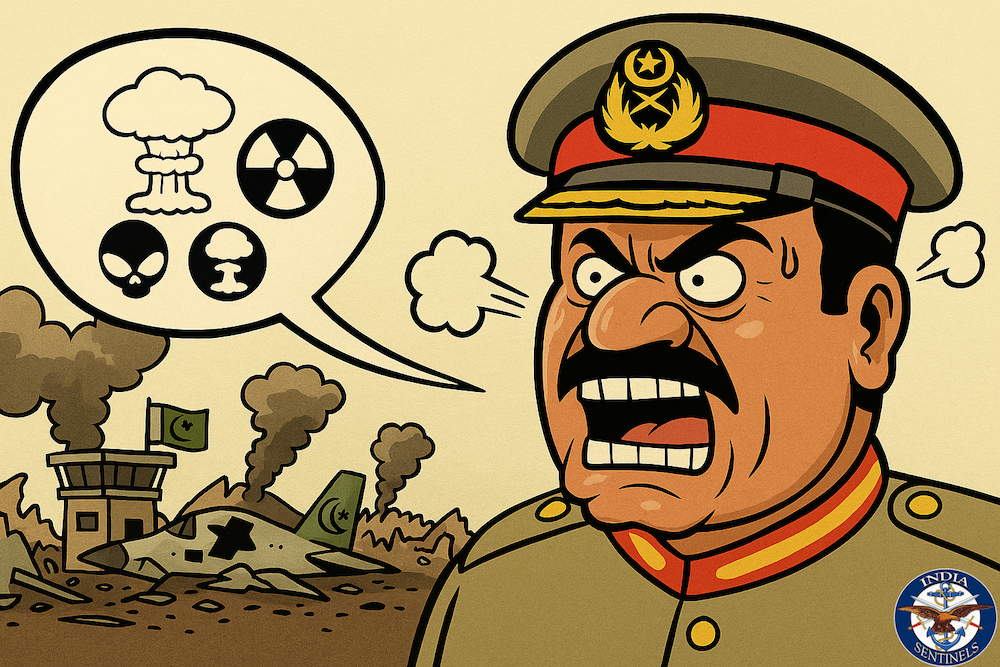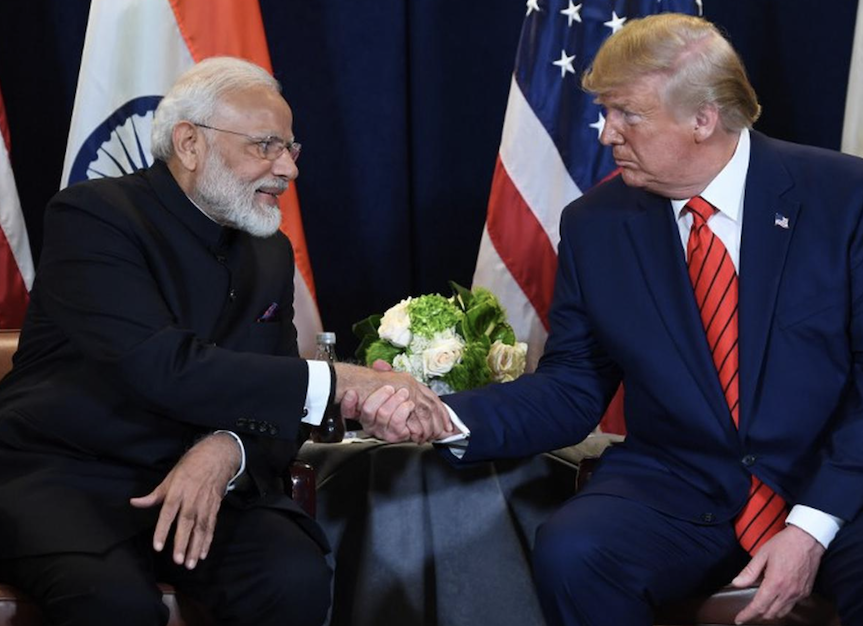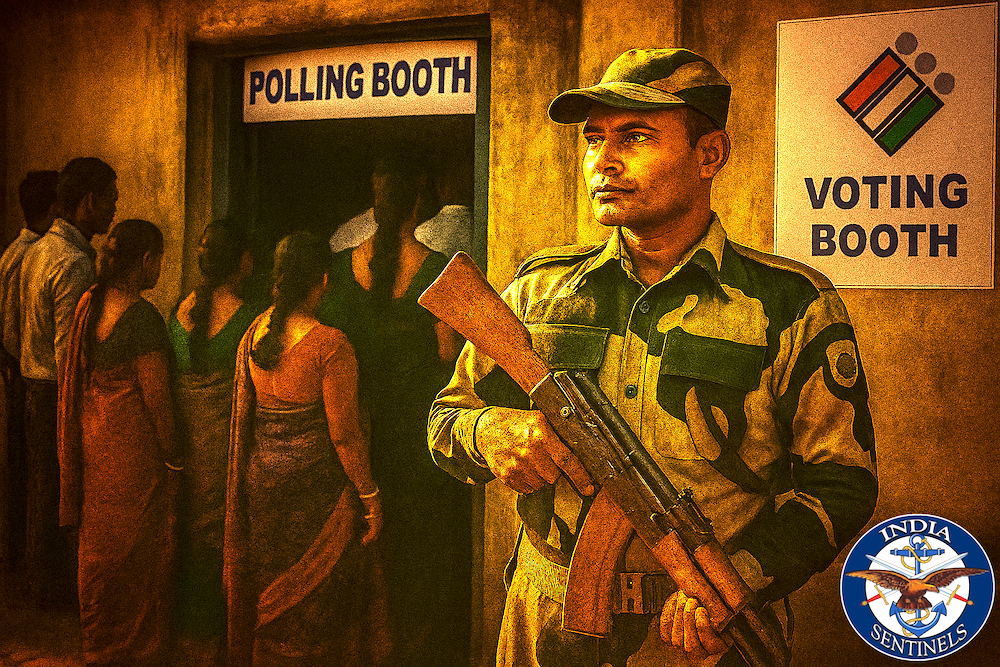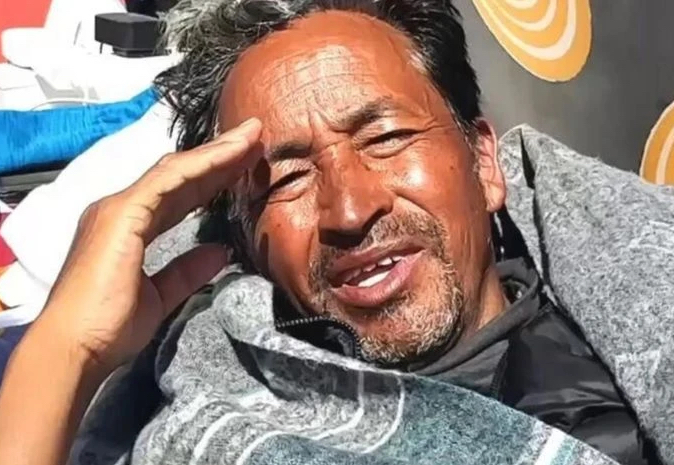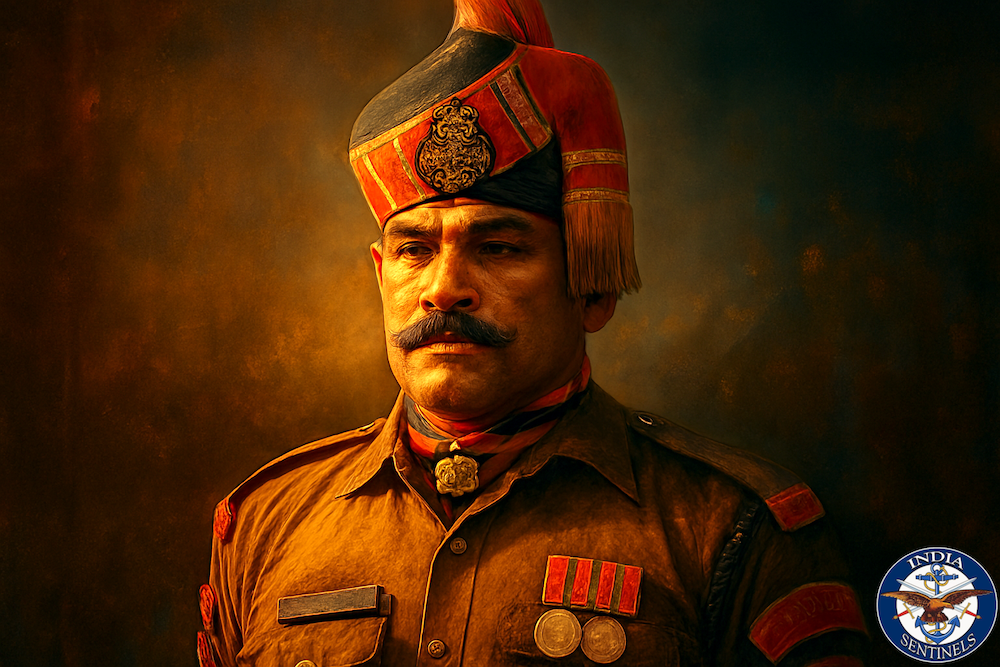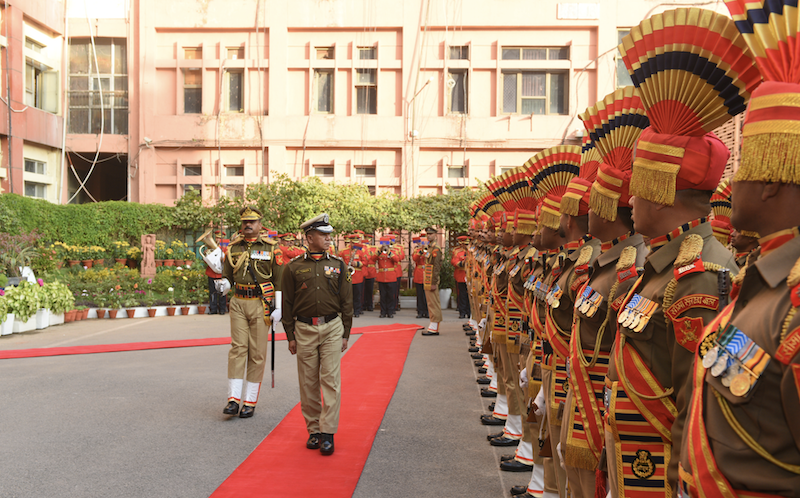 Border Security Force troops present guard of honour to Sujoy Lal Thaosen, an IPS officer, after he assumed the post of the director general of the force. (Photo: BSF)
Border Security Force troops present guard of honour to Sujoy Lal Thaosen, an IPS officer, after he assumed the post of the director general of the force. (Photo: BSF)
The need for a professional border-guarding force for the eastern and western borders with Pakistan during peace and supplement the Indian Army during war was felt after an analysis of the performance of the deployed state armed police battalions along the borders after the 1965 India-Pakistan war. The functional deficiencies of these battalions in terms of equipment, training, leadership, and compatibility with the Army to fight wars during the study became glaring. Thus, the Border Security Force came into existence on December 1, 1965, to guard India-Pakistan border by embodiment of state armed police battalions.
Yashwantrao Balwantrao Chavan, the-then Union home minister, while piloting the Border Security Force Bill, had said: “The purpose of this force is, as I have said, to ensure security of borders of India, secondly to secure or instil a sense of confidence in the people living on the borders and at the same time, to take precautions to see that smuggling and all the type of crimes that take place on the borders, do not take place.” He had further said: “Naturally the requirements of such a force are of special type and we had to take a different type of organization, a different type of training – and we have practically to give weapons to this force which is as good as that of the infantry.”
Read also: IPS officers vs CAPF officers: Unseemly tug of war
The force was new; there was no integral cadre of the force. During that time, the Indian Police Service and Army officers commanded the newly embodied state armed police battalions. In addition, emergency commissioned officers were inducted into the BSF as assistant commandants after release from the Army.
The first direct-entry officers’ batch was inducted into the BSF in 1966 and were posted in the battalions in 1967 as assistant commandants after basic training.
During the 1971 Liberation War of Bangladesh, the BSF was part of India’s war effort both in the eastern and western theatre. Either Army officers or police officers commanded BSF battalions, which were fighting the war. Emergency commissioned officers started picking up command posts in 1973. In addition, Army and IPS officers were also there in command. The decade from 1969 to 1979 was a mixed decade as far as command of the BSF battalions was concerned. The direct-entry officers’ cadre, which was integral to the force, was also growing. Since the direct-entry cadre was young in service, battalion commands were with the emergency commissioned officers.
Read also: Efficiency of CAPFs suffering from ‘glass ceiling’ effect
In the mid-eighties through the late eighties, with dynamic changes in the national security scenario, enhanced internal security threats and terrorism sponsored from across the border started gaining centre stage in the national security paradigm. Keeping this in view, the Border Security force was expanded by raising additional battalions. By this time, the direct-entry officers’ cadre was staffing all-important posts up to commandant level along with emergency commissioned officers.
By mid-nineties most of the emergency commissioned officers retired and command shifted to integral cadre.
Experience and professional competence are related to each other. As one grows in service and rank, one gains professional competence and experience. Therefore, he needs empowerment to utilize his experience and professional competence for organizational effectiveness through higher responsibilities. The ability to shoulder responsibilities will come with empowerment through higher responsibilities.
Read also: Placing border-guarding forces under the Army?
The BSF is now about to complete 58 years and the integral BSF cadre is 57 years old. This cadre has attained professional competence to lead the force in heterogeneous and challenging security environments. The government is gradually empowering and expanding the scope of command of the integral BSF cadre through opportunities to command the force at various levels of hierarchy. The BSF cadre officers have shouldered all responsibilities entrusted to them professionally and successfully.
The BSF is a border-guarding force with the primary role of border management during peacetime, which integrates and functions under the Army’s operational control during wartime. The BSF cadre officers are trained for both roles.
Read also: Story of BSF’s key role, valour and sacrifices in 1971 India-Pakistan war
Border management, border guarding, and war fighting are professional domains. Officers require professional training for commanding these domains. They will not become good leaders of men unless they have attained professional competence to successfully lead men during peace and war, and plan professionally at all levels. The BSF cadre officers are professionals in their core domains. Therefore, there is a strong case for the government to consider expanding their professional responsibilities to the highest level of the force’s command.
It may consider empowering and entrusting force command to BSF cadre officers considering their professional competence and experience being integral part of systematic command hierarchy of the force from the company-level command to battalion-level command – the two major professional milestones to gain professional competence for higher level of responsibilities. The government is the best judge in the matters of cadre management and is best placed to take call in the matter of cadre empowerment.
Read also: Leadership of security forces is failing nation to control Maoists
There is a strong case for consideration to empower integral cadre officers with force command at the highest level. Cadre officers have proved their professional mettle in hierarchical command structure of the force since the force was raised. As mentioned before, the BSF’s integral cadre is now 57 years old, experienced, and professionally empowered. All it needs is the government to consider these cadre officers a chance to prove their mettle at the highest level.
Follow us on social media for quick updates, new photos, videos, and more
Twitter: https://twitter.com/indiasentinels
Facebook: https://facebook.com/indiasentinels
Instagram: https://instagram.com/indiasentinels
YouTube: https://youtube.com/indiasentinels
Disclaimer: The views expressed in the article are the author’s own and don’t necessarily reflect the views of India Sentinels.
© India Sentinels 2022-23


